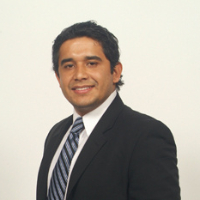Westchester County, NY Criminal Lawyers
Sponsored Law Firm
-
 x
x

Click For More Info:
-
Osorio Cachaya Law Offices, PLLC
203 E Post Rd 1st Floor White Plains, NY 10601» view mapAccident & Injury, Criminal, Family, Immigration Experienced Legal Assistance!
Osorio Cachaya Law Offices, PLLC is a family-owned law office that has been offering a team approach to legal issues since 1999.Se Hablamos Espanol
800-318-9750
Hugh G. Jasne
✓ VERIFIEDMr. Jasne is a founding partner of the firm and a graduate of New York Law School. He holds an undergraduate degree from New York University. Upon gra... (more)
Jesus Antonio Cachaya
✓ VERIFIEDWe have offices located in Westchester, White Plains and New York City and we represent clients throughout all of New York State in various legal matt... (more)
Michael Howard Joseph
✓ VERIFIEDA lawyer for more than 20 years, Michael H. Joseph can help you with your personal injury, commercial litigation, or criminal defense case. Mr. Joseph... (more)
Darren Deurso
✓ VERIFIEDDarren DeUrso has been in practice for 25 years, including years as an assistant district attorney for Westchester County and in the private practice ... (more)
Lisa Colosi Florio
Ms. Florio is a cum laude graduate of Pace Law School, obtaining a joint Juris Doctor and Master's Degree in Public Administration. She graduated magn... (more)
FREE CONSULTATION
CONTACTFREE CONSULTATION
CONTACTFrank Kurtis Taubner
FREE CONSULTATION
CONTACT Jesus Cachaya White Plains, NY
Jesus Cachaya White Plains, NY Practice AreasExpertise
Practice AreasExpertise






